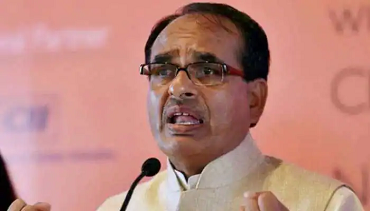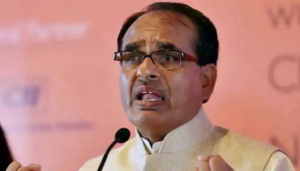- Union Minister Shivraj Singh Chouhan launches ‘ASEAN-India Fellowship’ for Higher Education in Agriculture and Allied Sciences today in PUSA, New Delhi
Agriculture has been the backbone of India’s economy for centuries, providing livelihoods to millions and contributing significantly to the Gross Domestic Product
New Delhi. : Union Minister for Agriculture and Farmers’ Welfare and Rural Development Shri Shivraj Singh Chouhan launched today ‘ASEAN-India Fellowship’ for Higher Education in Agriculture and Allied Sciences in ICAR, PUSA, New Delhi. Union Ministers for State of Agriculture and Farmers’ Welfare Shri Ram Nath Thakur and Shri Bhagirath Choudhary were also present in the event.
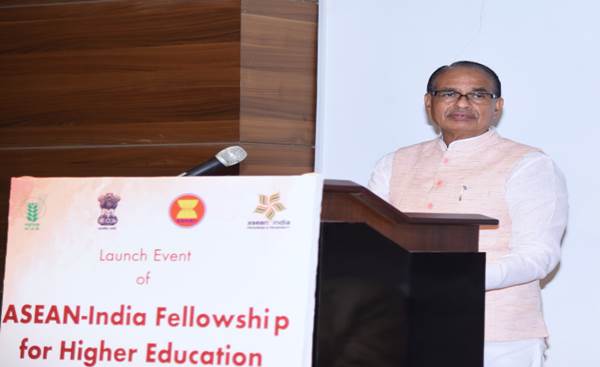
During his address, Shivraj Singh Chouhan said that agriculture has been the backbone of India’s economy for centuries, providing livelihoods to millions and contributing significantly to the Gross Domestic Product (GDP). It continues to be the largest provider of employment, especially in rural areas. However, this sector faces numerous challenges, including climate change, decreasing soil fertility, small landholdings, inadequate mechanization, dependency on monsoons, diseases, post-harvest losses, marketing issues and price volatility. Agricultural education plays a critical role in developing a skilled, talented, and entrepreneurial workforce capable of addressing these challenges and ensuring the profitability and sustainability of the agriculture sector in the coming years.
Shri Chouhan said that the Indian Council of Agricultural Research (ICAR) has been at the forefront of shaping and ensuring the quality of agricultural education in India. It sets the rules, policies, and standards to ensure that agricultural education thrives across the country and contributes to sustainable development in this sector.
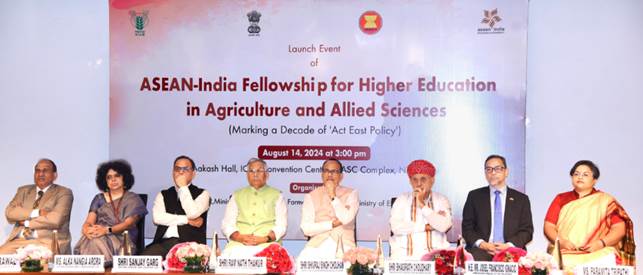
Supported by public funding under the National Agricultural Research, Education, and Extension System, India has 66 State Agricultural Universities, 4 Deemed Universities, 3 Central Agricultural Universities, and 4 Central Universities with agricultural faculties, all supervised by ICAR. These institutions offer a range of programs from undergraduate to doctoral levels in various fields, including agriculture, horticulture, animal husbandry, fisheries, veterinary science, agricultural engineering, and more. They also conduct significant research in agricultural sciences and provide services to farmers and stakeholders.
To meet the need for talented individuals in agriculture and allied sciences in the country, ICAR’s Agricultural Education Division has been conducting a national-level entrance examination annually since 1996-97. Through this examination, centralized admissions are provided to 20% of undergraduate and 30% of postgraduate (Masters and Doctoral) programs in agriculture and allied sciences across the country. The primary objective of these examinations is to promote academic excellence in agricultural education by fostering talent, encouraging merit, and enhancing examination standards across universities, thereby improving the overall quality of higher agricultural education in the country.
To attract students to higher agricultural education and to achieve academic excellence in teaching and research in agriculture and allied sciences, ICAR offers various scholarships/fellowships to undergraduate, postgraduate, and PhD students based on criteria developed by the Council. The rates of these scholarships/fellowships, along with the guidelines, are revised from time to time. These scholarships/fellowships are awarded to students who secure admission in agricultural universities through ICAR’s entrance examinations for ICAR seats.
Shri Chouhan said that the capacity and competence of the ICAR-Agricultural University system are now recognized globally. Many students from developing countries are benefiting from and pursuing higher studies at Indian agricultural universities, attracted by the research and teaching facilities developed here. ICAR/Department of Agricultural Research and Education (DARE), Indian Council for Cultural Relations (ICCR), and other agencies facilitate the admission of foreign students in various degree programs in agriculture, horticulture, forestry, veterinary sciences, agricultural engineering, etc., based on applications received through these agencies. As more jobs are being created in the private sector in developing countries, students from these countries are increasingly interested in coming to India to understand Indian agriculture and pursue their studies here. To support their higher studies in India, ICAR has initiated several programs/fellowships such as the Netaji Subhas Fellowship, India-Africa Fellowship, India-Afghanistan Fellowship, and BIMSTEC Fellowship. Currently, around 135 international students are pursuing their degrees at various agricultural universities.
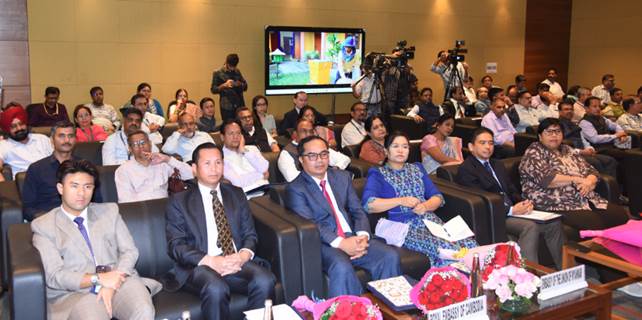
Shri Shivraj Singh said that i am delighted that in this direction, the ASEAN-India Fellowship for Higher Education in Agriculture and Allied Sciences is being launched. India has maintained a strong partnership with ASEAN member countries since the establishment of ASEAN in 1967. Our shared history and geography connect India and ASEAN. Along with shared values, regional unity, peace, prosperity, and a shared belief in a multipolar world bind us together. ASEAN is the cornerstone of India’s ‘Act East Policy’ and the ‘Indo-Pacific Vision’ built upon it. India fully supports ASEAN unity, ASEAN centrality, and ASEAN’s outlook on the Indo-Pacific. For us, political, economic, and security cooperation with ASEAN is of utmost priority. Similarly, people-to-people ties, which we constantly strive to enhance, are also important. It is encouraging to see our partnership achieving new dimensions with each passing year.
The importance India places on ASEAN and East Asia forums is evident from Prime Minister Modi’s visit to Jakarta on the eve of our G20 summit last year. He announced a 12-point plan, most of which has been implemented.
Shri Chouhan said that there are immense possibilities for agricultural cooperation between India and ASEAN member countries as ASEAN and India share many similarities in terms of agro-climatic zones. Currently, there are not enough opportunities for young researchers to understand common agricultural problems.
To foster ASEAN-India cooperation in agriculture and forestry, the ASEAN-India Fellowship Program for Higher Education in Agriculture and Allied Sciences is being launched. This fellowship is specifically for postgraduate programs in various emerging areas of mutual interest within agriculture and allied sciences. It will help students from ASEAN member countries receive quality research-based education, bringing India and the ASEAN community closer together and providing a platform for intercultural and international exchange of knowledge among students from ASEAN countries.
He said that this fellowship will assist ASEAN students in pursuing a postgraduate degree in agriculture and allied sciences at the best Indian agricultural universities in identified priority areas. Additionally, participating Indian faculty members will be facilitated with introductory visits to ASEAN member countries to aid ASEAN capacity-building. This will promote the development of a pool of expert human resources in ASEAN for the growth of agriculture and allied sciences.
This initiative will expose students to cutting-edge research offered by Indian agricultural universities in their master’s programs, preparing them for future innovations. Additionally, long-term degree courses in India can help researchers from both regions stay connected for a long time and better understand agriculture-related issues in ASEAN and India.
As stated, from the academic year 2024-25, a total of 50 fellowships (10 per year) will be awarded to students from ASEAN member countries for a master’s degree in agriculture and allied sciences. This project has been approved for funding under the ASEAN-India Fund for five years, covering fellowships, admission fees, living expenses, and incidental expenses for the students.
Union Minister said that i congratulate ICAR and the ASEAN Secretariat for taking the initiative to launch the ASEAN-India Fellowship for Higher Education in Agriculture and Allied Sciences. I am confident that this fellowship will greatly help researchers and students leverage the strengths of ASEAN and India and find solutions that can be applied in both India and ASEAN member countries. Introductory tours of Indian faculty to ASEAN will help assess the needs of ASEAN students and enhance ASEAN-India institutional ties.
